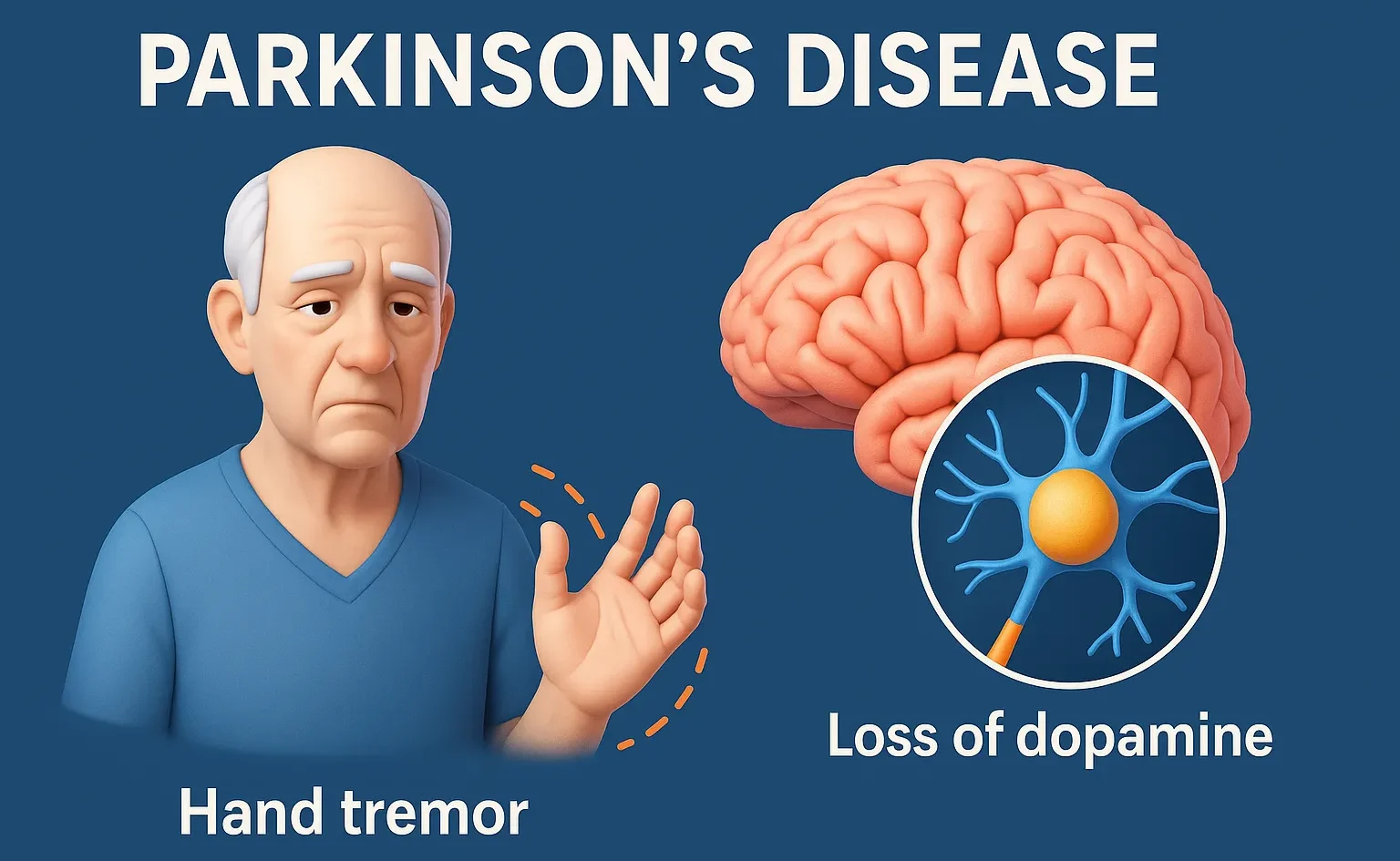Parkinson’s Disease (PD) is a progressive neurodegenerative disorder that primarily affects movement and coordination. Characterized by symptoms such as tremors, muscle stiffness, slow movements, and balance difficulties, It occurs due to a gradual loss of dopamine-producing neurons in the brain. Early diagnosis and proper management with medications, lifestyle changes, and therapies can help improve quality of life and slow disease progression.
Overview of Parkinson’s Disease (PD):
- Parkinson’s disease is a neurodegenerative disorder characterized by the loss of dopaminergic neurons in the substantia nigra pars compacta, leading to a deficiency of dopamine in the basal ganglia.
Cardinal Symptoms:
- Resting tremor
- Bradykinesia
- Rigidity
- Postural instability
Pharmacological Goals:
- Increase dopaminergic activity
- Decrease cholinergic activity (to restore balance in the basal ganglia)

